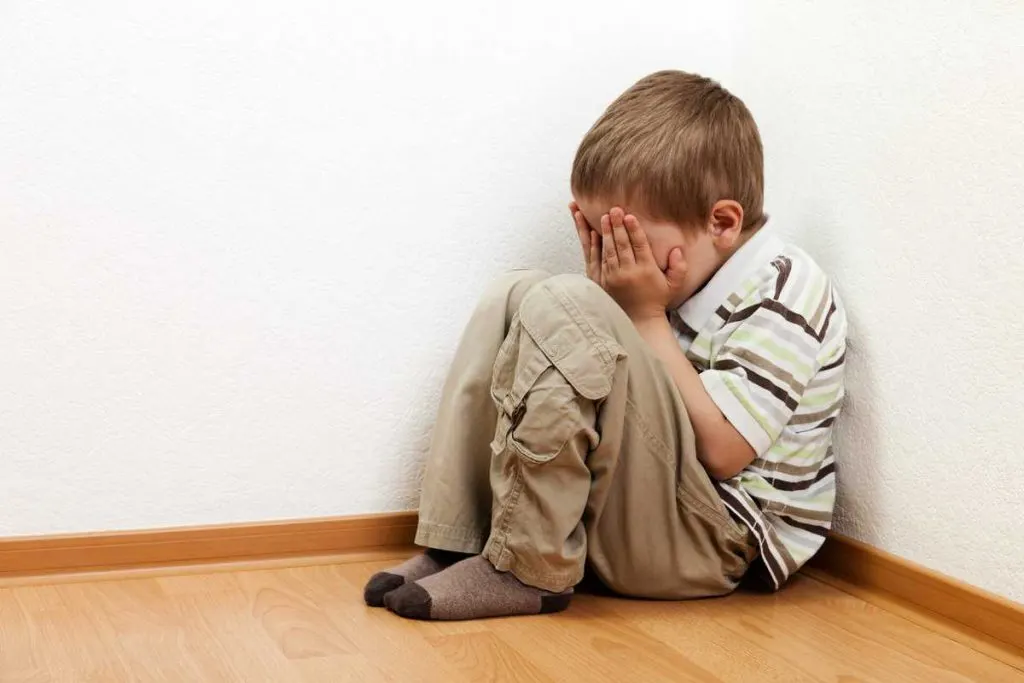If your friends weren’t raised by narcissistic parents, they can’t possibly understand what you go through on a daily basis.
Narcissists are only interested in themselves: their children are just an extension of their ego.
This means that their happiness, their interests or even their mental health are not priorities.
Narcissistic parents are only concerned with their image and their children’s mistakes, if these tarnish their ideal.
They can be physically abusive, but most of the time, they are primarily emotionally abusive.
Many believe that this form of abuse, accompanied by neglect, is worse.
In fact, it’s invisible!
So even if you talk about what your parents are doing to you, few people will believe you.
There’s no proof, and narcissistic parents will do anything to maintain a perfect image of their family and upbringing.
So, if you say what’s going on behind the walls of your home, you’re often told:
But that’s not possible, your parents are so attentive and kind.
No one questions what they say or how they behave, because we think children lie.
Besides, narcissistic trauma doesn’t magically stop when you become an adult.
There’s no switch you can flip to erase everything you’ve been through.
For example, you remain stuck in toxic romantic relationships and even destructive friendships, because this represents security for you.
It’s something you know!
In fact, your narcissistic parents and traumas have made you addicted to danger.
I’m sure you’ve tried to explain to your friends why you never see your parents or why you’ve moved to the other side of the country.
But your loved ones can’t understand because they didn’t grow up in a toxic environment.
They were lucky enough to have parents who were loving, present and tender.
So, there are 15 main things only you can understand:
1. You were never a child

Growing up, you were always told that you were more mature than your peers of the same age.
This was because your parents didn’t do anything around the house and relegated their responsibilities to you.
Even if, on the other hand, they treated you like an idiot, telling you that you weren’t capable of thinking for yourself.
As an adult, you feel you have a wounded child hidden deep inside.
So you sometimes buy yourself stuffed animals or like to play with your friends’ children.
2. Your intuition is always on the alert

Sometimes you act like a detective trying to prove that the people around you mean you harm.
With narcissistic parents, you’ve learned to read the signs of yelling, fighting or abuse.
You’ve become an expert at reading body language and spotting red flags.
Of course, you’re tired of always paying attention to everything and believing that someone is out to get you.
In fact, you’re always looking for a reason to run away from a relationship, whether it’s love or friendship.
3. You don’t trust anyone

You weren’t allowed to have your privacy when you were a child.
Surveillance was omnipresent, so you learned to hide, lie and manipulate.
All this was done to avoid abuse or rejection by your parents.
As an adult, you continue to hide your secrets and very few people can claim to really know you.
You think everyone wants to hurt you, so you protect yourself so you don’t get hurt again.
4. Perfectionism is your obsession

Do I really need to explain where this problem comes from?
Narcissistic parents live their lives through their children, so they force them to achieve their goals and live their lives the way the parents want them to.
They never achieved their dreams, so they force their children to follow in their footsteps, only better.
So, as an adult, you continue to pursue perfection and set your goals extremely high.
You’re constantly exhausted because you work too hard!
5. You need to control your environment

As a child, your parents controlled you completely and didn’t let you make your own decisions.
So now you’re afraid of losing control and living a life that doesn’t suit you.
This means you control your loved ones, your work and your environment down to the last detail.
In fact, it allows you to calm your fears and know where you’re going.
6. You don’t know how to say ‘no

Are you able to set healthy limits in your personal relationships?
Do you accept everything your loved ones suggest, even if you don’t want to?
Do you apologize even when you don’t have to?
Since your parents have constantly invaded your privacy and intimacy, you don’t know how to set limits.
So you do your best to please others to your detriment.
7. You’re inexplicably attracted to toxic men

You’re aware of this, but you can’t get out of this vicious circle.
These men represent security because their behavior is familiar: you recognize your parents in them.
Your parents have convinced you that everything good is suspicious and that you should never trust nice people.
In fact, you sabotage yourself because you believe you don’t deserve happiness.
What’s more, you consider the enemy you know to be more reassuring than the one you don’t.
8. You have an addictive personality

When traumas become too painful, you look for ways to silence them.
That’s why children of narcissistic parents turn to alcohol or drugs.
It puts their brains on pause and calms the pain.
Sure, you’re sabotaging yourself, but your pursuit of adrenaline is addictive to you.
In this way, you seek to erase everything you’ve been through.
9. Fear of abandonment is your curse

As a child, nobody took care of you, so now you’re looking for someone who can understand and help you.
With this in mind, you tend to share too much information about your past and your traumas.
What’s more, since you feel that your parents abandoned you by being neglectful or abusive, you’re afraid that today’s loved ones will do the same.
But there’s a catch: you’re abandoning yourself on a daily basis!
You don’t take care of your needs, you sabotage yourself and you have a poor self-image.
10. Your emotions are always in extremes

You have great difficulty identifying and calming your emotions: your anger becomes rage and your happiness becomes euphoria.
When you recover (thanks Mom, thanks Dad), you’re even terrified of what you’re feeling.
Why do you have so many negative feelings and fears inside you?
As a child, you weren’t allowed to show your feelings, so you learned to bury them.
Now, all these emotions are jumping out at you at once.
11. You have memory lapses

What happens when you experience a violent trauma?
Your brain shuts down, making compartments to hide negative emotions and abuse.
This is a defense mechanism designed to enable you to function ‘normally’.
Now, you often find yourself in situations of dissociation.
For example, you read a lot, you watch series on a loop or you count every step you take.
All this is designed to keep your brain busy, so that it doesn’t have to think about the trauma.
12. Your independence is a question of security

As a child, you weren’t allowed to have your own space, privacy or opinion.
Indeed, narcissistic parents need to control everything to guarantee their family’s success.
Now, you love living alone and spending time on activities you really enjoy.
For you, it’s a way of calming your nervous system.
You’re extremely independent because you think you can’t trust people.
13. You’re always able to cope

Whatever the situation, you know what you have to do to solve the problem.
Letting yourself down is not in your vocabulary!
As a child, you were constantly in survival mode, which taught you many skills.
You adapt to your environment and always lend a sympathetic ear to those in need.
Obstacles, challenges and failures don’t scare you!
14. You see parenthood in an atypical light

You rush through the stages of adulthood to make up for your parents’ mistakes.
In fact, you want to build a healthy, functional family to break through the generational trauma.
The problem?
You often choose the wrong partners, so the possibility that you’ll become a solo mom isn’t out of the question.
Yet you’re not afraid of this, because you want to be a mother and you want to be a good one.
15. You avoid your toxic family

As an adult, you’ve distanced yourself from your narcissistic parents, but no one understands why you made this choice.
The very idea of talking to them or seeing them takes you back to your childhood and all your traumas.
This stress can completely ruin your day, so you avoid it as much as possible.
Maybe you send your mom a message once a month to let her know you’re still alive.
But you don’t include them in your life, and you don’t even tell them what’s new with you.
16. You struggle with self-worth

Your parents made you feel that you were never enough, no matter how hard you tried. Their constant criticism and neglect left you questioning your value. As an adult, you find it hard to accept compliments or believe in your own achievements. Deep down, you feel like an imposter, even when you’re succeeding. This self-doubt is a direct result of the emotional manipulation you endured growing up, and it’s something you continue to battle, no matter how much progress you make.

Well, hello there!
My name is Jennifer. Besides being an orthodontist, I am a mother to 3 playful boys. In this motherhood journey, I can say I will never know everything. That’s why I always strive to read a lot, and that’s why I started writing about all the smithereens I came across so that you can have everything in one place! Enjoy and stay positive; you’ve got this!

